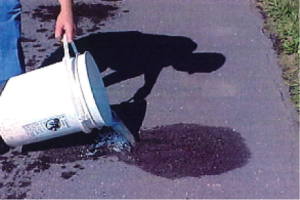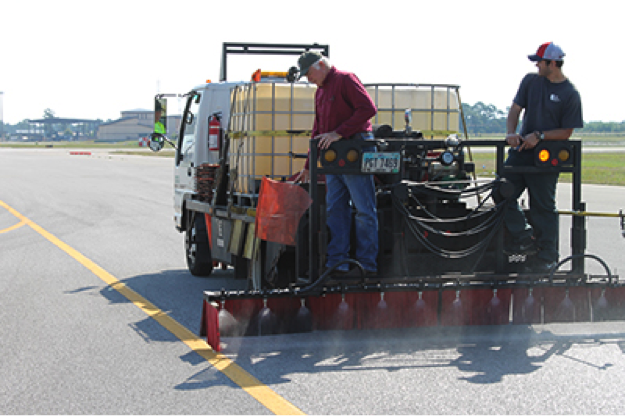Soy-Based Replay™ Paves the Way to Transportation Savings
February, 2014
 A 2012 report by the U.S. Treasury Department revealed that motorists waste 1.9 billion gallons of fuel each year in traffic jams, costing Americans $100 billion (factoring in time and fuel). To keep traffic moving, the report recommended faster — and fewer — road repairs.
A 2012 report by the U.S. Treasury Department revealed that motorists waste 1.9 billion gallons of fuel each year in traffic jams, costing Americans $100 billion (factoring in time and fuel). To keep traffic moving, the report recommended faster — and fewer — road repairs.
Research by the Minnesota Local Technical Assistance Program (LTAP) Center for Transportation Studies demonstrates how Replay, a soy-based pavement-preservation agent developed with United Soybean Board support, can extend the life of existing asphalt services.
Asphalt oxidizes and wears out when exposed to oxygen in the air. Small cracks form in the asphalt and fill with water, which freezes in cold temperatures, causing larger cracks and potholes. Petroleum-based asphalt sealers can be harmful and inconvenient in areas with high volumes of pedestrian traffic.
After removing debris, the city of Hutchinson, Minn., applied Replay to two test sections of pavement: an old area with pronounced cracking and a new stretch with only minor deterioration. Both pavements were dry to the touch within 30 minutes of application.
To evaluate Replay’s effectiveness, the city poured water onto each surface before and after the material was applied. Water appeared to wick into the pavement of both surfaces before Replay application.
After Replay was applied, water quickly ran off the surfaces with no environmental contamination. Unlike other sealants, Replay did not become soft and sticky during hot weather periods and did not affect the skid resistance of the surfaces.
Traditional asphalt surfaces can last an average of 10-12 years when sealed. BioSpan Technologies says Replay can extend surface life spans two to four times longer. This helps reduce road repair costs, prevents traffic jams, and saves consumers time and wasted fuel.

